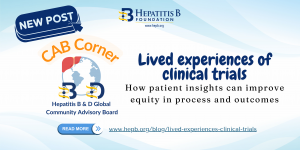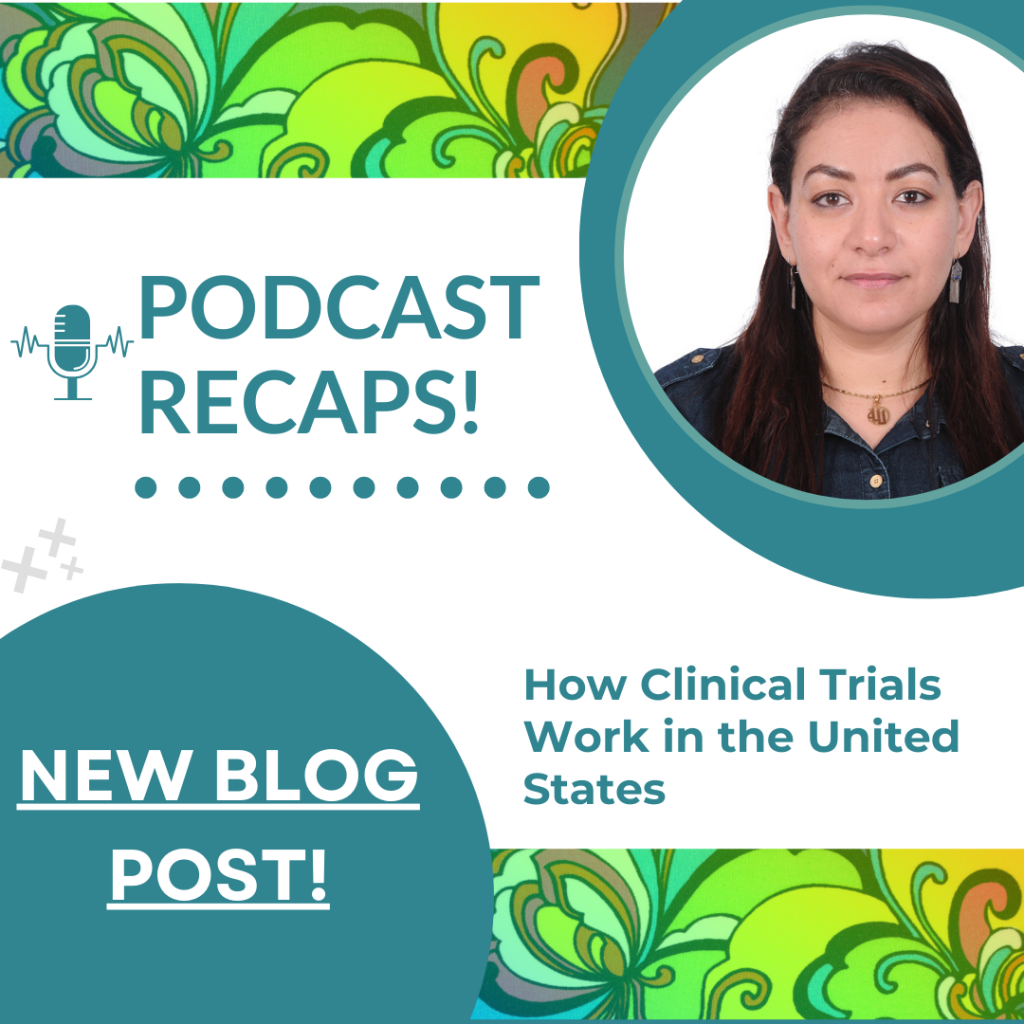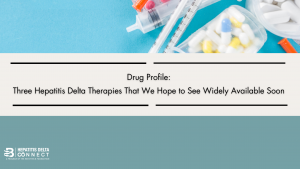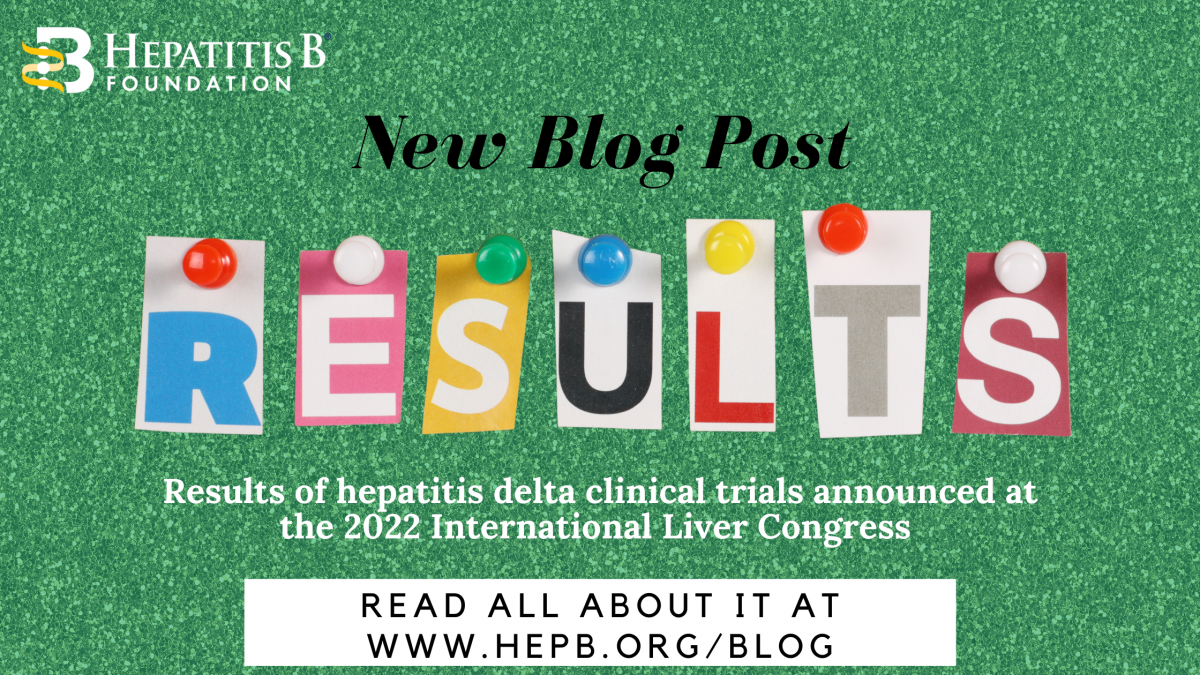
Authors: Lori Scott, Amanda Goldring, Joe Balestreri, Philip Kwame Yeboah, Kenneth Kabagambe, and Prince O. Okinedo
Patient involvement in research means they are included as active partners in all stages of the research process. In other words, patient involvement ensures that research is carried out with patients, instead of research being done to patients [1].
Patient involvement is essential throughout the drug development and clinical trial process to ensure patients’ clinical needs and preferences are met [2]. When clinical trial teams do not involve patients as research partners to identify appropriate research outcomes and co-create study designs, the teams may fail to achieve meaningful outcomes. More and more researchers are realizing that the personal experiences of patients and their caregivers are not just useful, but vital to the design of clinical trials.
Patient participation in clinical research is crucial for informing patient recruitment and retention efforts that can ultimately speed up the development and potential market availability of medicines and diagnostics [3]. In the end, patients are the intended recipients of the products of clinical research, and if patients are actively involved in research, they can effectively improve outcomes.
The following four sections share real life stories and lived experiences of individuals trying to participate in clinical trials, and the challenges they have faced. The patients and caregivers who contributed to this blog have personal experiences with applying for, enrolling in, and being rejected from clinical trials, and know of the treatment consequences when patients are not involved in their care plans. Based on their experiences, they have suggested many ways to incorporate the patient voice into drug development and clinical trial design, from recruitment, enrollment and retention methods to informational materials for patients, to help industry and academia develop more accessible clinical trials and research efforts.
Please note: Following the four accounts of personal experiences, there are seven specific suggestions for researchers.
Lori’s lived experience: Challenges identifying and applying for clinical trials (2018)
There is no clear pathway for patients when trying to find and apply for clinical trials, and much of the effort is placed on the patient to move through the process.
Currently, it seems the internet search bar is the best option for patients trying to join clinical trials, and recruitment is not happening at the local level in communities and even in doctors’ offices. This process places a significant burden on the patient and needs to change.
My daughter’s diagnosis of hepatitis B, hepatitis D and other rare digestive diseases did not come with a map. We had to start with the internet and do our own research. I would work all day and research all night; I was in a fight for my daughter’s life. We learned about some potential clinical trials through the Hepatitis B Foundation’s Clinical Trial page and how to apply for study participation. When my daughter applied for a clinical research program with the National Institutes of Health (NIH), I had to figure out the whole process from finding information to applying and getting screened.
We were excited when she was accepted for the first phase of the trial, but as I understood later, my daughter’s study group was one of the first of this trial. The trial was not well organized, and it seemed that the research team was not cohesive. It seemed that the staff did not know if the patients had full understanding of all that would happen in the clinical environment. Participants involved in the consent process need to understand that research is distinct from clinical care. Research eventually benefits society rather than the participant. It is also necessary to understand expectations and risks involved in participation, and that someone knowledgeable is available to go over questions and concerns before the consent signature.
While the travel was well coordinated, it was difficult for my daughter due to her frail physical condition. When we arrived, some of the specialists assigned to her care were on vacation or otherwise unavailable, which was heartbreaking as we were informed of my daughter’s very full itinerary before planning our trip to the center, to ensure she would receive all planned evaluations. We had planned specifically for these two days and that somehow did not happen. These physicians were vital to the study process, and the evaluations should have been postponed until those key people were available.
We returned home with little communication from the program after their testing, which they told us would be normal. A year later, we received a letter from the organizers, stating that they were releasing her from the study but would keep her data in the system.
Reflecting on this experience, I was disappointed in the way the trial was organized. If there was a patient navigator, or clear informational sources, we would not have had to guess what was happening next for the entire time we were at the research site. Because it wasn’t well explained, we had unmet expectations of the study. Despite these shortcomings, we are glad to have participated and felt we learned so much about research.
By gaining a deeper understanding of patients’ and caregivers’ lived experiences and challenges, organizations offering clinical trials can become a true asset, providing the valuable data needed for future research.
Amanda’s lived experience: Clinical trial rejection (2020)
It was only a couple of months after my hepatitis B diagnosis that my liver nurse called to ask if I would be willing to apply for a clinical trial. The trial team was trying to find a functional cure for HBV. She said that she could not guarantee that my application would be successful, as she did not know the criteria for acceptance, but it was worth a try.
I sent off my application form and waited to hear back.
Initially, I was very excited at the thought of participating in a trial. Even if the trial came to a dead end, it could possibly be another step towards a functional cure. I watched for the post each day, hoping for an acceptance letter. As time went on, I was sure that I had a place on the trial. Surely, if I did not meet the criteria I would have heard back almost right away. To save disappointment, it would have been better for the “acceptance criteria” to be transparent, either at the start before my nurse had become involved, or at a later stage on the application form. In this case I was given no patient-facing materials. Surely this should be a standard requirement.
Time passed and eventually the letter I had waited for dropped through my letter box. On opening it my heart sank–it was a rejection letter. Due to being diagnosed with Crohn’s disease (a type of irritable bowel disease that makes your digestive tract become swollen), I was not suitable for the trial. The letter tried to let me down gently, saying that maybe I would be suitable later. However, it gave me false hope and for months I hoped that a letter would arrive inviting me to participate in the trial that did accept Crohn’s patients. Eventually, I realised that this letter was never going to come. My world, which was already dark, felt darker. I felt that society was rejecting me and now the drug trials were too. Drug researchers should consider patients’ feelings when rejecting their application. They should implement quick responses and avoid using language that may give false hope for future acceptance into another clinical trial.
Thankfully, I have moved on from this dark period in my life. I have accepted that I will probably never be eligible for a clinical trial, as a functional cure seems to rely on strengthening the immune system. My Crohn’s treatment relies on suppressing the immune system. It would have been kinder, in the long run, not to give false hope. An explanation as to why Inflammatory bowel disease was excluded would be far better than “maybe at a later date.” As patients, we are used to hearing stark news and although it might be painful to hear, we eventually do accept it – we have no choice.
There is hope after being rejected for a trial. There will possibly be other drug trials to apply for and if not, the pot of gold at the end of the rainbow will eventually be a functional cure for this or the next generation.
Researchers must consider patients’ feelings when rejecting their applications. Implementing quick responses is not just a matter of efficiency; it also shows respect for the patient’s time and effort.
Joe’s lived experience: Clinical trial participation (2013 to 2019)
When I signed-up for the National Institutes for Health’s (NIH) clinical trial to find a treatment for hepatitis delta in 2013, I didn’t know how it would affect my life overall. I was focused on getting help.
The NIH was accommodating in many ways concerning my practical needs. For U.S.-based patients in my trial, airfare, lodging on campus, and most land transportation was paid for by the NIH.
But there were many challenges to being in a trial far from home. Looking back, I figured each of my 70 round trips from California to Washington could cost me $100-200 in lost wages and travel expenses. There were also challenges getting to D.C. for weekly appointments, which required 16 to 20 hours of travel round trip. These visits were crammed with many weeks’ worth of tests, scans and doctor appointments. Sometimes, poor communication from the NIH led to confusion about my travel arrangements. Other times, my symptoms were so bad that I couldn’t bear a long plane ride plus getting to and from the airport.
Communication with the NIH was good but sometimes lacking, especially as it was difficult getting my hepatitis delta test results. Oftentimes, I did not receive clear and adequate explanations of my results.
If I were involved in redesigning my study, I would have urged the researchers to have a better understanding of what patients and their loved ones go through just getting to the NIH, including the financial, physical and social costs, as well as time commitment. When clinical trials are informed by patients, other patients in the community are more likely to volunteer for trials AND are more likely to stay committed to participating, as the challenges mentioned above (personal hardships, communication issues) have been accounted for during the clinical trial design.
Philip’s: How patient involvement in research can enhance hepatitis care in Africa
Patients in Ghana are not involved in clinical research, despite existing research infrastructure. There are many clinical research institutions, including the Ghana I Noguchi Memorial Institute for Medical Research and Kumasi Centre for Collaborative Research. These are the same research institutions that train the doctors who handle hepatitis B.
Linking it to my late brother’s story, I remember when Komfo Anokye Teaching Hospital in Kumasi, Ashanti region, Ghana, booked my brother who was living with hepatitis B on Aug. 17, 2017, to come for treatment on Sept. 4, 2017. Because there are a limited number of doctors who were available to treat people living with hepatitis B, my brother had to wait for weeks for a doctor’s appointment. During this waiting period, I updated the hospital on my brother’s deteriorating condition many times, but they insisted that he must wait until the booked date. At exactly 8:15 a.m. on Tuesday morning, 5th September 2017, heartbreakingly, I saw my brother Emmanuel, also known as Action man, giving his last breath. Because there was no patient involvement in care plans in Ghana, there was nothing to help my brother’s condition, as he was diagnosed too late, and there were no clinical trial opportunities to explore (to our knowledge), despite the apparent need. If those living with hepatitis B had more say in their care plan, they would be able to communicate directly with researchers about their conditions and be guided accordingly, and appropriately for their individual cases.
After my brother’s demise, our immediate family members went to get tested for hepatitis B. We all tested negative for hepatitis B infection, and we took the vaccine. Based on these experiences, I have taken it upon myself to educate the public about the deadly but preventable hepatitis B infection on social media platforms and radio stations. Currently, I am the Ashanti Regional Representative for Hepatitis Foundation of Ghana and a member of the Hepatitis B Foundation’s Global Hepatitis B and D Community Advisory Board.
People with lived experience have insights that can help inform researchers and clinical trial developers in their research efforts and encourage them to seriously consider patient inputs during all steps in the drug development process, from clinical trials to developing patient care plans.
Kenneth: How patient involvement in research could have future impact on care/treatment practices
Patient involvement in research can significantly enhance African healthcare practices by promoting more effective, relevant, and culturally sensitive interventions. This method reflects African communities’ cultural, social, and economic realities, ensuring that findings and recommendations are viable for local implementation. Patients can contribute insights into critical health challenges, such as infectious diseases, maternal health, or non-communicable diseases like diabetes and hypertension.
Involving patients in research increases their understanding of their diseases, treatment options, and the importance of adherence to medical guidance, leading to better health outcomes [4]. They can also function as advocates and educators, increasing awareness and debunking misconceptions about diseases and treatments.
Research that includes patient involvement can establish treatment protocols and care practices better adapted to the local environment, promoting comfort, dignity, and patient choices [5]. Patients engaged in inclusive research are more likely to trust and engage with the healthcare system, leading to higher participation in health initiatives, better treatment adherence, and greater uptake of preventative measures [6].
Research that is co-led with patients can have a dramatic influence on policymakers. By providing data founded on the real-world experiences of persons afflicted by diseases, patient-centered research can drive the development of policies that prioritize patient needs and assist in implementing more successful health services.
In conclusion, the revolutionary potential of patient involvement in research cannot be more strongly emphasized! By ensuring that healthcare practices are more relevant, culturally sensitive, and aligned with the population’s needs, this approach has the power to significantly improve the quality of care, foster greater trust in the healthcare system, and ultimately lead to better health outcomes and more resilient healthcare systems across Africa.
Suggestions
Research using patient involvement led to more meaningful socio-economic and cultural outcomes, as patients identified issues of which researchers were not previously aware [7]. When patients are involved throughout the drug development/clinical trial design process, they can inform researchers of best practices to disseminate results among the participants and greater patient community, as they can suggest appropriate communication methods to ensure comprehension [8, 9]. Similarly, patients can co-present results at conferences [10], which can increase the greater patient community’s trust in research, and potentially increase their willingness to participate in future clinical trials, or other research endeavors.
Take home suggestions for researchers:
1) Recognize the hardships and costs of long-distance travel for patients. Find ways to alleviate this by, for example, allowing patients to get tests and scans closer to home.
2) Find ways to help patients with the incidental costs of the trial, not otherwise covered. For example, connect patients with educational resources about financial assistance programs and fundraising methods.
3) Improve timely communication between trial staff and patients.
4) Properly educate and inform potential study participants on the study’s required activities.
5) Allow study participants to have access to their personal trial data and study statistics.
6) Recognize patients as citizen scientists, as their participation is critical to research advancement, as they provide careful and specific observations. Researchers must keep in mind that patients are not just test subjects.
7) As important as it is to get the patient to understand clinical trial requirements, researchers should also make the effort to educate the close family members of consenting patients. Offering moral support, especially in communal settings like Africa, is critical to enhance acceptance of clinical trials and research endeavors.
Resources
- National Institute for Health and Care Research. (n.d.). I want to help with research. [Accessed from: https://www.nihr.ac.uk/patients-carers-and-the-public/i-want-to-help-with-research/]
- Arumugam, A., Phillips, L.R., Moore, A., Kumaran, S.D., Sampath, K.K., Migliorini, F., Maffulli, N., Ranganadhababu, B.N., Hegazy, F. & Botto-van Bemden, A. (2023). Patient and public involvement in research: A review of practical resources for young investigators. BMC Rheumatology, 7(2). doi: 10.1186/s41927-023-00327-w
- Anderson, A., Borfitz, D., & Getz, K. (2018). Global public attitudes about clinical research and patient experiences with clinical trials. JAMA Network Open, 1(6), e182969-e182969. doi: 10.1001/jamanetworkopen.2018.2969
- Shea, L., Pesa, J., Geonnotti, G., Powell, V., Kahn, C., & Peters, W. (2022). Improving diversity in study participation: Patient perspectives on barriers, racial differences and the role of communities. Health Expectations. 25(4):1979-87. doi: 10.1111/hex.13554
- Wind, A., van der Linden, C., Hartman, E., Siesling, S., & van Harten, W. (2022). Patient involvement in clinical pathway development, implementation and evaluation–A scoping review of international literature. Patient education and counseling. 105(6):1441-8. DOI: 10.1016/j.pec.2021.10.007
- Mulqueeny, D.M. & Taylor, M. (2022). Patient-centred care: Reality or rhetoric—patients’ experiences at ARV clinics located in public hospitals in KwaZulu-Natal, South Africa. AIDS research and therapy. 9(1):41. DOI: 10.1186/s12981-022-00463-2
- Shen, S., Doyle-Thomas, K. A. R., Beesley, L., Karmali, A., Williams, L., Tanel, N., & McPherson, A. C. (2017). How and why should we engage parents as co-researchers in health research? A scoping review of current practices. Health Expectations: An international Journal of Public Participation in Health Care and Health Policy, 20(4), 543–554. https://doi.org/10.1111/hex.12490
- Beier, K., Schweda, M. & Schicktanz, S. (2019). Taking patient involvement seriously: A critical ethical analysis of participatory approaches in data-intensive medical research. BMC Medical Informatics and Decision Making, 19(90). doi: 10.1186/s12911-019-0799-7
- Maccarthy, J., Guerin, S., Wilson, A.G. & Dorris, E.R. (2019). Facilitating public and patient involvement in basic and preclinical health research. PLoS One, 14(5): e0216600. doi: 10.1371/journal.pone.0216600
- Jackson, T., Pinnock, H., Liew, S.M., Horne, E., Ehrlich, E., Fulton, O., Worth, A., Sheikh, A. & De Simoni, A. (2020). Patient and public involvement in research: From tokenistic box ticking to valued team members. BMC Medicine, 18(79). doi: 10.1186/s12916-020-01544-7





